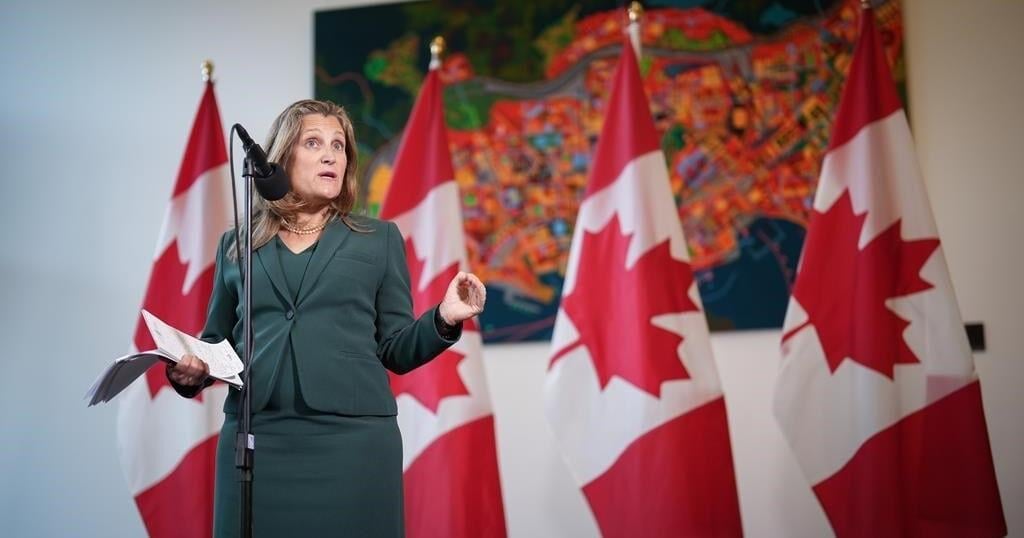OTTAWA – Finance Minister Chrystia Freeland says the government is making some changes to mortgage rules to help more Canadians to purchase their first home.
She says the changes will come into force in December and better reflect the housing market.
The price cap for insured mortgages will be boosted for the first time since 2012, moving to $1.5 million from $1 million, to allow more people to qualify for a mortgage with less than a 20 per cent down payment.
The government will also expand its 30-year mortgage amortization to include first-time homebuyers buying any type of home, as well as anybody buying a newly built home.
On Aug. 1 eligibility for the 30-year amortization was changed to include first-time buyers purchasing a newly-built home.
Justice Minister Arif Virani is also releasing drafts for a bill of rights for renters as well as one for homebuyers, both of which the government promised five months ago.
Virani says the government intends to work with provinces to prevent practices like renovictions, where landowners evict tenants and make minimal renovations and then seek higher rents.
The government touts today’s announced measures as the “boldest mortgage reforms in decades,” and it comes after a year of criticism over high housing costs.
The Liberals have been slumping in the polls for months, including among younger adults who say not being able to afford a house is one of their key concerns.
This report by The Canadian Press was first published Sept. 16, 2024.
